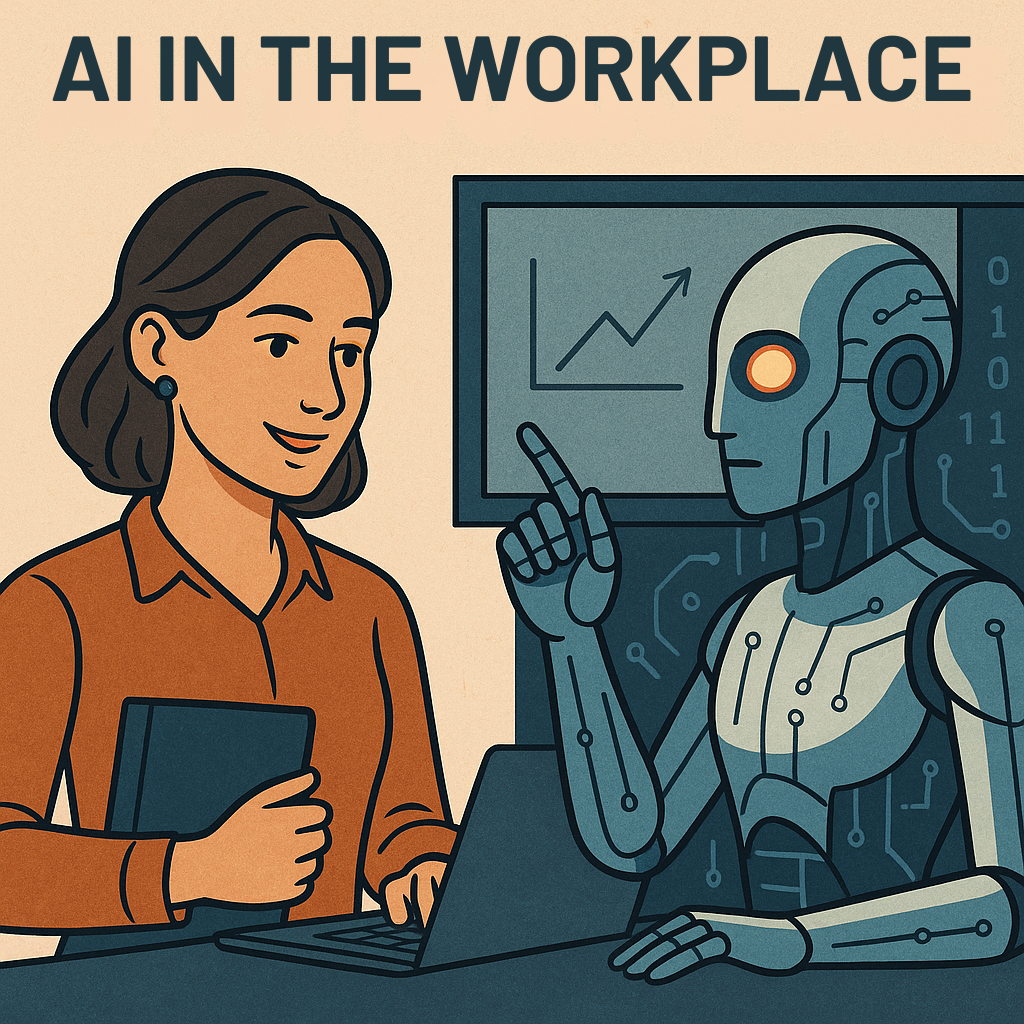
AI in the Workplace: Friend, Foe, or Both?
Artificial Intelligence (AI) has transitioned from a futuristic concept to a tangible force in the modern workplace. From automating repetitive tasks to driving strategic decisions, AI is reshaping what it means to work in virtually every industry.
“While AI may eliminate 75 million jobs by 2025, it is expected to create 133 million new ones — a net positive of 58 million jobs.”
— World Economic Forum
Businesses across sectors are using AI to enhance productivity, reduce operational costs, and personalize customer experiences. Salesforce, for example, uses AI-driven tools like Career Connect and Career Agent to match employees with internal job opportunities, promoting mobility and skill growth.
But rapid AI adoption hasn’t come without tension. According to The Times, 29% of UK employees are secretly using generative AI at work — often without their employers’ knowledge — suggesting growing anxiety about job security and staying competitive.
Still, many professionals see AI not as a threat, but as a powerful collaborator. A Gallup poll found that 45% of workers said AI tools improved their productivity, especially in automating mundane or repetitive tasks.
As AI continues to evolve, it’s clear that its impact will be nuanced. It won't just replace jobs — it will redefine them. The real challenge lies in how organizations and individuals adapt, reskill, and embrace this new wave of intelligent tools.